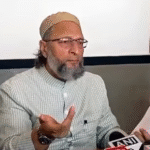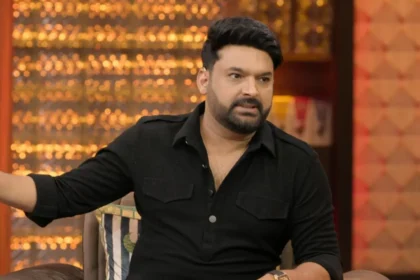BJP’s BY Vijayendra Claims Randeep Surjewala Preparing Ground for Karnataka CM Siddaramaiah’s Exit
The Political Shockwave in Karnataka
Karnataka’s political climate took a dramatic turn with an incendiary claim by BJP state president BY Vijayendra. In a statement that has sent ripples through the corridors of Vidhana Soudha, Vijayendra alleged that senior Congress leader and AICC in-charge for Karnataka, Randeep Singh Surjewala, is laying the groundwork for an imminent leadership change in the state government by orchestrating the exit of Chief Minister Siddaramaiah.
This declaration comes at a time when the Congress-led government in Karnataka is navigating the twin challenges of governance and internal dissent. Siddaramaiah, who returned to the CM post in 2023 after the Congress party’s victory in the assembly elections, is known for his mass appeal and administrative experience. However, his second tenure has not been without friction.
The BJP’s Strategic Accusation
Vijayendra’s statement, while seemingly political rhetoric, is layered with implications. By asserting that Surjewala is working behind the scenes to sideline Siddaramaiah, he taps into the longstanding speculation of factionalism within the Karnataka Congress.
“Randeep Surjewala is not just overseeing party affairs in the state; he is preparing the ground for a new face to take over from Siddaramaiah,” Vijayendra alleged, adding that the current government is plagued by mismanagement and internal confusion.
He further claimed that there are visible signs of discontent among senior Congress MLAs who feel marginalized in decision-making. If true, such discord could weaken the cohesion of the government and open a window of opportunity for BJP to gain political capital ahead of the 2026 general elections.
Congress Responds: Unity or Denial?
In response, Congress spokespersons swiftly dismissed Vijayendra’s remarks as baseless and inflammatory. They labeled the accusations a diversionary tactic aimed at covering up the BJP’s lack of direction in opposition.
Congress MLA and close Siddaramaiah aide, Zameer Ahmed Khan, said, “There is no such move. CM Siddaramaiah continues to enjoy the full support of the party high command. Randeep Surjewala has always worked for strengthening the state unit. These are BJP’s desperate attempts to sow discord.”
However, political analysts observe that while Congress leaders may publicly deny factionalism, internal power dynamics have been a part of the party’s DNA for decades. With D.K. Shivakumar serving as Deputy CM and also harboring CM ambitions, the undercurrents of competition have not been far from the surface.
Media Reaction and Political Optics
The media in Karnataka has treated Vijayendra’s remark as both provocative and strategic. Headlines range from calling it a “bold charge” to framing it as part of BJP’s larger plan to destabilize the Congress government before the national election season kicks in.
TV debates and political forums are abuzz with questions: Is Siddaramaiah’s position really under threat? Does Surjewala have the mandate to push for a leadership transition? Is D.K. Shivakumar the alternative being silently projected? Or is this a classic case of BJP sowing seeds of doubt to trigger a reaction
Karnataka’s political climate took a dramatic turn with an incendiary claim by BJP state president BY Vijayendra. In a statement that has sent ripples through the corridors of Vidhana Soudha, Vijayendra alleged that senior Congress leader and AICC in-charge for Karnataka, Randeep Singh Surjewala, is laying the groundwork for an imminent leadership change in the state government by orchestrating the exit of Chief Minister Siddaramaiah.
This declaration comes at a time when the Congress-led government in Karnataka is navigating the twin challenges of governance and internal dissent. Siddaramaiah, who returned to the CM post in 2023 after the Congress party’s victory in the assembly elections, is known for his mass appeal and administrative experience. However, his second tenure has not been without friction.
The BJP’s Strategic Accusation
Vijayendra’s statement, while seemingly political rhetoric, is layered with implications. By asserting that Surjewala is working behind the scenes to sideline Siddaramaiah, he taps into the longstanding speculation of factionalism within the Karnataka Congress.
“Randeep Surjewala is not just overseeing party affairs in the state; he is preparing the ground for a new face to take over from Siddaramaiah,” Vijayendra alleged, adding that the current government is plagued by mismanagement and internal confusion.
He further claimed that there are visible signs of discontent among senior Congress MLAs who feel marginalized in decision-making. If true, such discord could weaken the cohesion of the government and open a window of opportunity for BJP to gain political capital ahead of the 2026 general elections.
Congress Responds: Unity or Denial?
In response, Congress spokespersons swiftly dismissed Vijayendra’s remarks as baseless and inflammatory. They labeled the accusations a diversionary tactic aimed at covering up the BJP’s lack of direction in opposition.
Congress MLA and close Siddaramaiah aide, Zameer Ahmed Khan, said, “There is no such move. CM Siddaramaiah continues to enjoy the full support of the party high command. Randeep Surjewala has always worked for strengthening the state unit. These are BJP’s desperate attempts to sow discord.”
However, political analysts observe that while Congress leaders may publicly deny factionalism, internal power dynamics have been a part of the party’s DNA for decades. With D.K. Shivakumar serving as Deputy CM and also harboring CM ambitions, the undercurrents of competition have not been far from the surface.
Media Reaction and Political Optics
The media in Karnataka has treated Vijayendra’s remark as both provocative and strategic. Headlines range from calling it a “bold charge” to framing it as part of BJP’s larger plan to destabilize the Congress government before the national election season kicks in.
TV debates and political forums are abuzz with questions: Is Siddaramaiah’s position really under threat? Does Surjewala have the mandate to push for a leadership transition? Is D.K. Shivakumar the alternative being silently projected? Or is this a classic case of BJP sowing seeds of doubt to trigger a reaction?
Part 2: Siddaramaiah’s Legacy, Power Centers in Congress, and the Road to 2026
Siddaramaiah’s political journey is one marked by resilience, mass appeal, and a unique ability to connect across caste lines—especially with the AHINDA (minorities, backward classes, and Dalits) coalition. His governance model during his first term as Chief Minister was largely praised for its populist schemes, especially those targeting the rural poor. However, his second term has shown signs of internal friction, particularly as generational shifts and factional battles within Congress intensify.
The rivalry between Siddaramaiah and D.K. Shivakumar is no secret. Though both leaders have publicly presented a united front post-election victory in 2023, insiders say the Congress leadership had to negotiate hard to strike a balance of power. Siddaramaiah secured the CM position with the assurance that D.K. Shivakumar would be his eventual successor or at least maintain substantial clout as Deputy CM and KPCC chief.
Power Dynamics and Randeep Surjewala’s Role
Randeep Singh Surjewala, as AICC general secretary in charge of Karnataka, is seen by many as the Congress high command’s “eyes and ears” in the state. His increasing influence in party decisions, ticket allocations, and cabinet appointments has led some to believe that Surjewala is positioning himself as a kingmaker.
Vijayendra’s claims suggest that Surjewala is not merely managing party affairs, but potentially orchestrating leadership changes—a suggestion that aligns with murmurs within the party ranks. Some MLAs reportedly feel that their access to the CM has diminished while Surjewala’s central authority has grown.
This tension sets the stage for what could be a significant transformation in Karnataka Congress: a transition of power that may not wait until the next elections. Sources in Delhi have hinted that Congress could consider a change in leadership if governance ratings continue to falter or internal dissent becomes unmanageable.
Public Perception and the 2026 Outlook
Voters in Karnataka, traditionally inclined to alternate between Congress and BJP, are watching closely. Siddaramaiah enjoys considerable goodwill, but that alone may not shield him from political maneuvering. The BJP hopes that these fault lines will widen, especially with the 2026 general elections on the horizon.
For now, both parties appear to be in a silent war: Congress battling internal contradictions while presenting a facade of unity, and BJP capitalizing on every whisper of dissent to strengthen its narrative.
The question remains: Will Siddaramaiah be allowed to complete his term? Or is the countdown to a new leadership already underway within Karnataka Congress
Also Read : Siddaramaiah Asserts He Will Remain Karnataka Chief Minister for Full 5-Year Term








